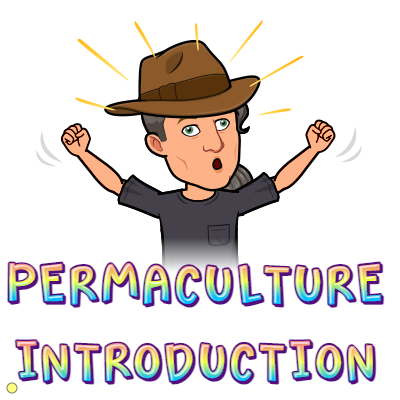

Vernal Pools
Vernal pools, those transient water bodies that come to life with the arrival of spring, stand as hidden gems within the diverse tapestry of ecosystems. Their ephemeral nature, filling up during specific seasons only to dry up as summer unfolds, adds a layer of intrigue to these unique habitats. Let's delve into the world of vernal pools, exploring their definition, functions in cold temperate climates, the array of species they harbor, and the critical components that make them essential to preserve.

Composting: A Sustainable Way to Improve Soil Quality
Composting is a natural process of decomposing organic matter into a nutrient-rich soil amendment. The benefits of composting include reducing waste, improving soil health, and promoting plant growth. There are various composting methods, each with its advantages and disadvantages. In this article, we will explore the different types of composting systems and their respective benefits and limitations.

Hugelkultur: A Sustainable Gardening Practice
Hugelkultur is a sustainable gardening practice that has gained popularity in recent years due to its ability to improve soil quality, conserve water, and produce abundant crops. At the Mindful Living Sanctuary, we have extensively used hugelkultur pits as a way to create fertile soil for our gardens.

Water Harvesting
Water is a precious resource that is essential for life. However, many regions around the world are facing water scarcity due to population growth, climate change, and inefficient water use. By using water harvesting techniques, we can reduce our dependence on municipal water supplies and contribute to water conservation efforts.
In addition to reducing water consumption and conserving water resources, water harvesting can also help to mitigate the impacts of climate change. As temperatures rise and weather patterns become more unpredictable, we are likely to see more frequent droughts and water shortages. Water harvesting can help to build resilience to these impacts by providing a reliable source of water for households, gardens, and communities.

Ways to Build Soil
Permaculture is a holistic approach to agriculture and land management that seeks to mimic natural ecosystems found in nature. A key component of permaculture is the building and maintenance of healthy soils, which are the foundation for healthy plants and a thriving ecosystem. In this article, we will explore some of the ways in which permaculturists build soil.

Introduction to Permaculture Food Forests: Components and Benefits
Permaculture food forests are a sustainable and regenerative way of growing food that mimics the structure and function of natural ecosystems. These food forests can provide a diverse range of edible and useful plants, improve soil health, and enhance biodiversity. In this article, we will introduce the major components of a permaculture food forest, including the seven layers of a natural forest, and the benefits of this system.

Permaculture Zones: Introduction and Examples
Permaculture zones are an important concept in permaculture design. The zone system is a way of organizing a site according to its frequency of use and the level of maintenance required. The idea behind the zone system is to place the elements of a system in the most appropriate location based on the level of human interaction required and the needs of the element. In this article, we will introduce the permaculture zone system and provide some examples of how it can be applied in practice.

Design Process in Permaculture:
Permaculture is a design system that aims to create sustainable and regenerative systems that work in harmony with nature. At the heart of permaculture is a design process that helps practitioners create systems that are both efficient and effective. The permaculture design process is a flexible framework that can be adapted to different contexts and scales, from a small garden to a large-scale farm or community. In this article, we will discuss the design process in permaculture and how it can be applied to create sustainable and regenerative systems.

Permaculture Principles: Designing for a Sustainable Future
Permaculture is a design system that aims to create sustainable, resilient, and regenerative systems that work in harmony with nature. At the heart of permaculture are a set of principles that guide the design process and help create systems that are both efficient and effective. While there are many permaculture principles, we will focus on the foundational ones that form the basis of permaculture design.

Permaculture Ethics: A Foundation for Sustainable Living
Permaculture is based on a set of three core ethics that provide a foundation for sustainable living. These ethics are care for the earth, care for people, and fair share. They provide a framework for designing systems that work in harmony with nature, support human well-being, and ensure that resources are shared fairly.

Introduction to Permaculture
Permaculture is a sustainable and regenerative design system that focuses on creating permanent agriculture and ecosystems. It was first introduced by Bill Mollison and David Holmgren in the 1970s, as a response to the unsustainable practices of modern agriculture and society. Permaculture is based on the principles of working with nature, rather than against it and creating self-sustaining systems that provide for human needs while improving the health of the ecosystem.

1st Article Introduction
Welcome to Mindful Living Sanctuary's brand-new website! We're excited to share with you all of the great content we have in store, and we're thrilled to have you here as part of our community.

The 10 forms of Capital
Investing in the 10 forms of capital is crucial for building long-term wealth and achieving a well-rounded and fulfilling life. Each form of capital represents a different aspect of our lives and contributes to our overall well-being and prosperity.

Good Design
Good design is more than just aesthetics. It is a deliberate and intentional process that considers various factors, such as functionality, sustainability, and user experience.
